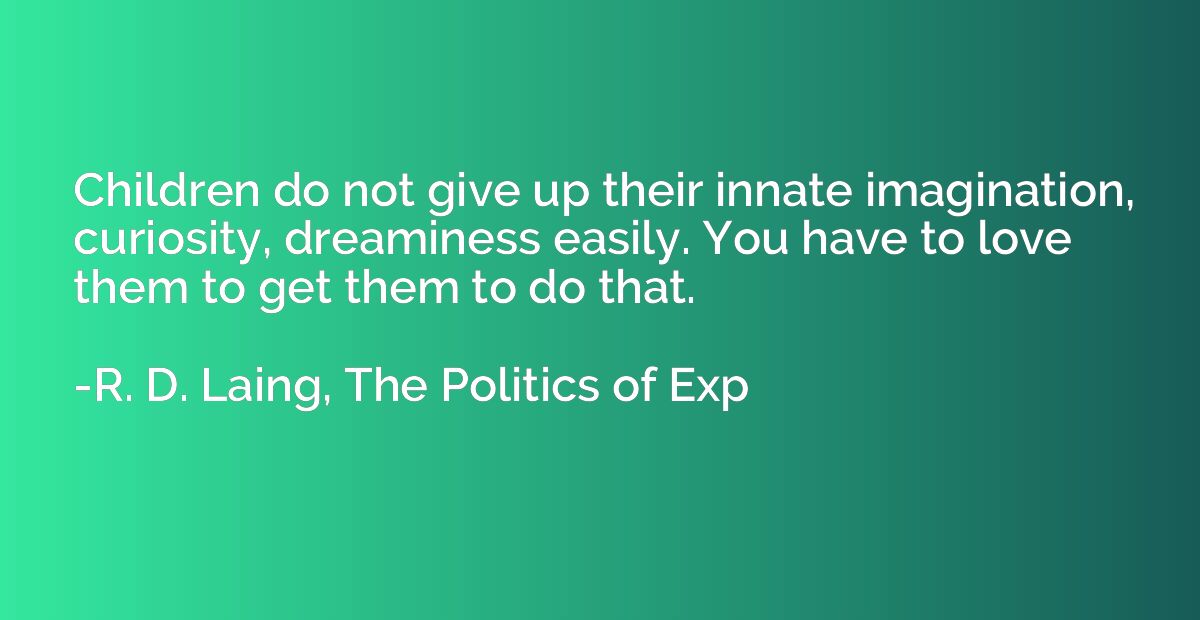R. D. Laing, The Politics of Exp Quotes
A collection of quotes by R. D. Laing, The Politics of Exp.
R. D. Laing was a Scottish psychiatrist and philosopher, renowned for his revolutionary ideas on mental illness and his outspoken criticism of the dominant psychiatric establishment of his time. Born on October 7, 1927, in Glasgow, Laing developed a keen interest in existential philosophy and psychoanalysis during his medical studies.
In 1960, Laing gained international recognition with the publication of his groundbreaking book "The Divided Self." This work challenged conventional psychiatric theories and proposed a radical understanding of mental illness as a natural response to the oppressive social environment. Laing argued that schizophrenia, in particular, should be understood as a strategy for self-preservation and a desperate attempt to establish a coherent identity in the face of societal pressures.
Throughout his career, Laing emphasized the importance of genuine human connection and sought to humanize mental illness rather than stigmatizing patients. His approach centered around empathetic and compassionate therapy, which he practiced at the famous Kingsley Hall, a residential community experiment where patients and therapists lived together. This unconventional approach aimed to create an environment where patients could find understanding and acceptance to aid their recovery.
Laing's ideas, collectively known as the "anti-psychiatry" movement, challenged the prevailing medical model of mental illness and sparked intense debate within the psychiatric community. Despite facing criticism and controversy, Laing remained committed to his principles, writing numerous influential books and lecturing around the world.
R. D. Laing's enduring legacy lies in his contribution to the humanization of mental illness and his revolutionary ideas that continue to influence the fields of psychiatry and psychology today. He passed away on August 23, 1989, leaving behind a rich body of work that continues to inspire critical thinking and alternative approaches to mental health.



